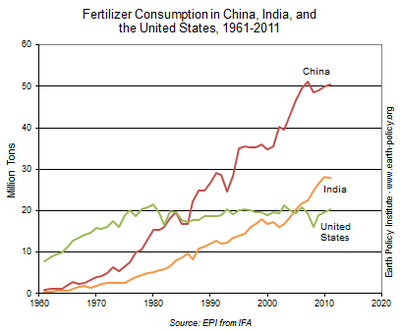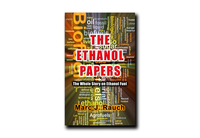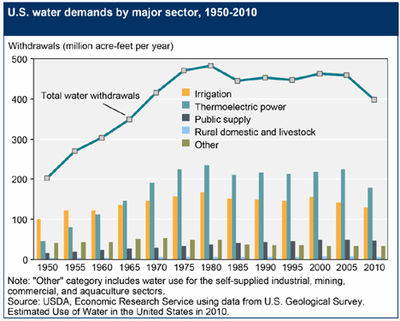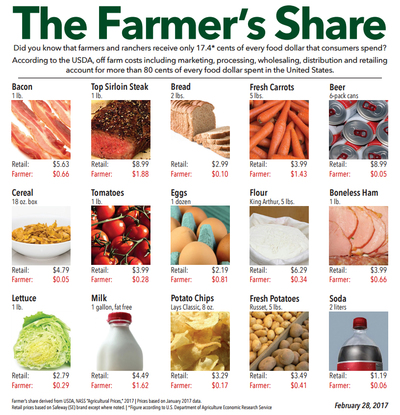Dr. J Fouls Out on Ethanol Fuel
 |
Dr. J takes the ball, everyone along the sideline is frozen in anticipation. He runs the length of the court, performs a crossover to blow by multiple defenders and glides seamlessly to what is sure to be a can't-miss slam dunk shot:
"NUMEROUS STUDIES HAVE PROVED THAT ETHANOL FUELS CONSUME MORE ENERGY THAN THEY PRODUCE."
But the shot hits the rim and bounces back in his face.
Dr. J gets the ball again. He jukes to the right, then to the left and fires a shot:
"ETHANOL PRODUCTION IS EXTREMELY LAND INTENSIVE."
The shot falls short by several feet.
There's still time for Dr. J to turn things around. He takes a bounce pass and charges into the corner to take a shot:
"MOST CARS AND TRUCKS CAN’T FUNCTION USING PURE ETHANOL AS FUEL."
Oh no, he trips over his own feet on the pivot, falls, and the shot rolls out of bounds.
Things are looking desperate, Dr. J has to score, a big score. He's gonna try a three point shot from half-court, and hope to get jostled so that he can then take two free throws. Dr. J jumps and heaves the shot:
"ETHANOL PRODUCTION COMPETES WITH FOOD PRODUCTION."
But the shot is wide, so wide that it misses the backboard completely.
And so goes all of the shots taken by Dr. J against ethanol; they all miss.
 Marc Rauch |
Exec. Vice President/Co-Publisher
THE AUTO CHANNEL
When I was a young man, there was another young man who grew up not too far from me in New York. His name is Julius Irving. He was a marvelous basketball player; one of the NBA's best ever, and of course he went on to the NBA Hall of Fame. He was called Dr. Julius; which was then shortened to "Dr. J." Julius Irving is not the Dr. J that I am referring to above. Aside from anything else, I doubt that Julius Irving ever tripped over his own feet while making a shot.
 Jay Lehr, Ph.D |
To mimic Oliver Hardy, again, "What kind of a fine mess did I get myself into this time?" How could I ever hope to go one-on-one with Dr. Jay Lehr? I might as well try playing one-on-one street b-ball with Julius Irving. It should be a slaughter.
Fortunately for me, the subject at hand isn't groundwater hydrology, it's ethanol.
About a week ago, on July 31st, the website CFACT.org published a Jay Lehr article titled "Burning Corn So We Can Drive 1/3 Less Miles To The Gallon." This article is filled with lies, out-of-context and out-of-date information, and gross exaggerations about ethanol. Even Mr. Lehr's use of the term "fossil fuels" is wrong. There are no "fossil fuels," as crude oil and coal do not come from decayed animals or plants - they are derived from minerals. I realize that "fossil fuels" is a common term, but it's wrong and I think that if you're going to tout your credentials the way that Lehr and the CFACT.org website do, then they should get this point correct or at the least make a reference to the inaccuracy of "fossil fuels." As I've written about it in the past, the creation of the term "fossil fuels" was simply a 19th century Rockefeller/Standard Oil scheme to make "abiotic fuels" sound more important, scarce, and romantic.
Jay Lehr relies on David Pimentel as an authoritative resource for his comments on the energy issues related to ethanol. As I've also written in the past, "any argument that relies on David Pimentel as the authoritative resource immediately invalidates the argument. Pimentel's reports, both solo and combined with Tad Patzek were completely discredited virtually as soon as they were published, including rebuke from Patzek's own employing institution, University of California at Berkeley. The Pimentel reports, by the way, were funded by the oil industry." To read more about this CLICK HERE, and scroll down to the section "EROEI" (energy returned on energy invested).
Lehr's article also relies on the energy content (BTU) issue to support his headline (burning corn produces 1/3 less mpg) and try to give additional strength to his anti-ethanol position. However, the energy content comparison between ethanol and gasoline (and diesel) is entirely irrelevant. Simply put, internal combustion engines do not run on steam. The BTU/energy content rating system was created to measure the amount of energy required to raise the temperature of water (to create steam in order to power a steam engine). If any internal combustion engine is producing steam, there's something broken in the engine.
The energy content issue is just another Big Oil scam designed to make ethanol appear inferior to gasoline and diesel fuel. I provide complete details about this at The Irrelevance Of BTU Rating - Big Oil's Gimmick To Hoodwink The Public. Then I back it up with more details at The Irrelevance Of BTU Rating - Revisited.
Regarding land use, I again thank Dana Fletcher who has supplied me with great links and data that prove that far more corn is grown in America than ever before; and that less land, fertilizer, and water is used to achieve it. Innovations and advancements by the U.S. agriculture industry has made this possible. And these facts rip Jay Lehr's anti-ethanol land arguments to shreds.
Land use -
Fertilizer use -
 |
Water use -
Furthermore, using the "40% of all corn" reference shows that Lehr has no understanding of actual facts or the nature of business. To begin with, farmers grow as much corn for ethanol as they do because they have sales orders for it. They are not growing that corn for humans and then suddenly divert the corn at the last minute away from the mouths of humans. Secondly, the 40% is not fit for human consumption. Third, the entire 40% can ALSO be used for animal feed, and we eat these animals. So that 40% serves two distinct purposes. Moreover, about 36% of the total corn crop is also used as animal feed. So in reality, approximately 3/4 of all corn grown in the U.S. is used to feed animals that we eat. No one is being deprived of any corn chips, corn dogs, popcorn, tortillas, canned corn, corn-on-the-cob, beef stakes, hamburgers, bacon or chicken wings.
The use of corn to produce ethanol does not increase the price of other foods. The amount of corn in a $4 box of corn flakes is about a nickel. A 50% increase in the price of corn would have virtually no effect on the retail price of corn flakes. The myth of corn ethanol causing food price increases began around 2008 with the publication of a report from The World Bank. The oil industry glommed onto this report and spent huge amounts of money to push the claim. However, in 2010, The World Bank retracted the claim, and instead correctly blamed the skyrocketing oil prices in 2007-8 for the increase in food prices. Petroleum oil prices greatly affect food prices because the oil is used for transportation fuel, packaging plastics, and printing inks. The World Bank has restated this retraction multiple times since 2010. It's inexcusable for Jay Lehr to make the food-price claims that he does. The following chart displays the retail prices of popular food items and the cost for the food items at the source (farmers).
Why someone like Jay Lehr would choose to enter the ethanol-gasoline fray is anyone's guess. I did send my criticisms to Dr. Lehr but he has not responded in any way. The one point that really exemplifies how unprepared he was for this challenge is his comment "MOST CARS AND TRUCKS CAN’T FUNCTION USING PURE ETHANOL AS FUEL." Who has been asked, let alone mandated, to use pure ethanol as fuel? In addition to the statement being ignorantly presumptuous, it indicates that he has no knowledge of how internal combustion engines work. If he did this as a favor to someone in the oil industry, he did them no favor. If he did it to pad his resume, I think he only sullied it. If he did it for money, I hope he spends if on something totally frivolous to match the value of the article.
I respect the enormous effort it takes to write and publish as many books and articles as Jay Lehr has. Unfortunately, when it comes to ethanol he's made too many fouls; he's been disqualified.
 |
For a lot more information about ethanol fuel you can read my 641-page book, THE ETHANOL PAPERS. It's available to read online for free by CLICKING HERE.





